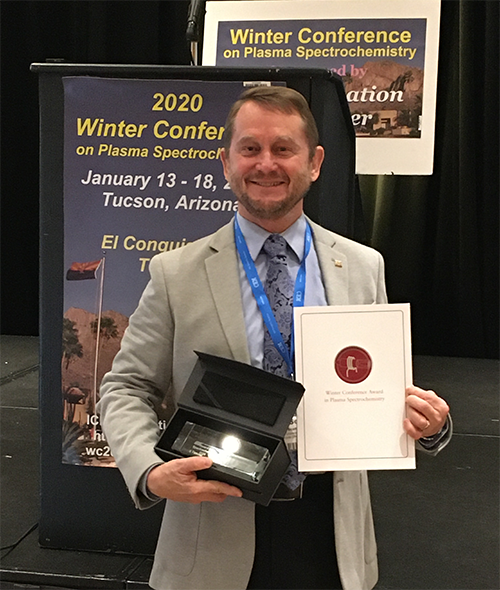Winter Conference Lifetime Achievement Award in Plasma Spectrochemistry Presented to Scott Tanner
Scott D. Tanner is the 2020 winner of the 2020 Winter Conference Lifetime Achievement Award in Plasma Spectrochemistry, sponsored by Thermo Fisher Scientific.

Scott D. Tanner is the 2020 winner of the Lifetime Achievement Award in Plasma Spectrochemistry, sponsored by Thermo Fisher Scientific. The award was presented to Tanner on January 13 at the 2020 Winter Conference on Plasma Spectrochemistry in Tucson, Arizona.
Tanner received his B.Sc. and PhD degrees from York University in Toronto, Ontario. He held positions at Sciex (Framingham, Massachusetts), the University of Toronto, and DVS Sciences (now part of Fluidigm). His contributions to the inductively coupled plasma–mass spectrometry (ICP–MS) community were substantial, focusing on the study of the fundamentals of ICP ion generation, dynamics, and transport, including prognostications on space charge and its implications for analyses; the development of the dynamic reaction cell for removing polyatomic ion interferences; and the development of ICP time-of-flight instrumentation for single-cell cytometry and subcellular imaging.
Chinese Researchers Develop Dual-Channel Probe for Biothiol Detection
April 28th 2025Researchers at Qiqihar Medical University have developed a dual-channel fluorescent probe, PYL-NBD, that enables highly sensitive, rapid, and selective detection of biothiols in food, pharmaceuticals, and living organisms.